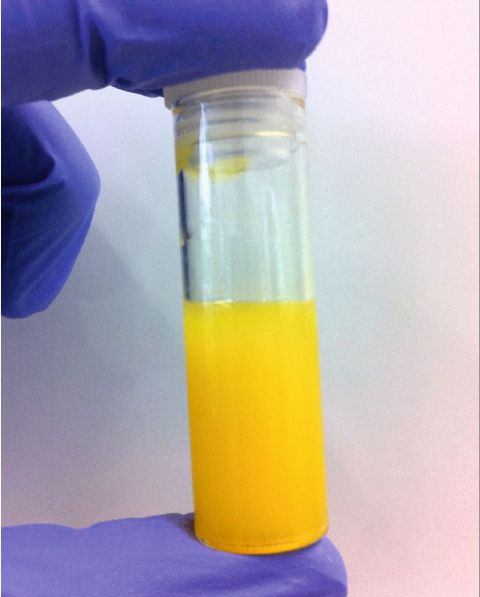Cancer Treatment Developed From Curry Compound Could Revolutionize Cancer Research

At home cancer remedies rarely carry any scientific validity, causing them to be discarded by the cancer research community. A research team from the University of Natural Resources and Life Sciences has developed an experimental treatment for cancer that is based off of a curry compound known as curcumin which continues to gain ground as a possible cancer-fighting agent.
Researchers led by Dr. Mehmet H. Ucisik of the university's Department of Nanobiotechnology, Institute for Synthetic Bioarchitectures, examined a combination of curcumin and an accepted drug delivery system called emulsomes. The resulting product, “CurcuEmulsome,” was introduced to cancerous cells to track the effect.
While a direct dose of curry or curcumin does not readily dissolved into cancerous cells, the curcumin and emulsomes concoction was easily absorbed by the cells. Not only did CurcuEmulsomes adhere to the cancer cells, but the gradual dissolution of the outer layer of emulsomes meant the curcumin would be released over time, eliminating the need for multiple treatments.
Curcumin, derived from the spice turmeric, has been accepted as both an anti-inflammatory and antioxidant, used for the treatment of disorders such as rheumatoid arthritis. It has been considered a staple in Asian medicine for centuries and has recently garnered attention as a possible cancer fighting remedy. The next step for CurcuEmulsome research will involve a method for introducing the mixture directly to cancerous cells in the human body.
A similar study conducted at Leicester Royal Infirmary and Leicester General Hospital tested the effects of curcumin combined with chemotherapy treatments on 40 bowel cancer patients. The ongoing clinical trials have been deemed successful by lead researcher Professor William Steward, from Leicester University, who said the combination worked “100 times better” than either therapy on its own.
"The prospect that curcumin might increase the sensitivity of cancer cells to chemotherapy is exciting because it could mean giving lower doses, so patients have fewer side effects and can keep having treatment for longer,” said Professor Steward. "This research is at a very early stage, but investigating the potential of plant chemicals to treat cancer is an intriguing area that we hope could provide clues to developing new drugs in the future."
Kupcu S, Schuster B, Sleytr U, Ucisik M. “Characterization of CurcuEmulsomes: nanoformulation for enhanced solubility and delivery of curcumin.” Journal of Nanobiotechnology. 2013.



























